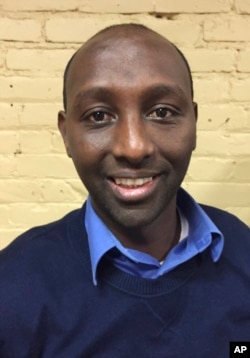In a busy office in the heart of Minneapolis' largest Somali neighborhood, about a dozen young men and women lined up at computers to work on resumes or apply for jobs. A few feet away stood a photo station, ready to create employee badges for those lucky enough to get hired on the spot.
The employment center, which has helped roughly 1,000 people find jobs since it opened in May, is one of several initiatives formed in Minnesota as part of a federal pilot project designed to combat terror recruiting.
Those at the forefront of these efforts say they plan to keep them going, despite uncertainty that lies ahead with a new administration.
A focus on needs
"Our work will continue no matter what," said Mohamud Noor, executive director of the Confederation of Somali Community in Minnesota. "We want to send a strong message: If you get people engaged, focus on their needs and are able to connect with them, you end up raising the whole community up."
The Obama administration launched pilot projects in Minneapolis, Boston and Los Angeles as part of its broader strategy to counter violent extremism in late 2014.
Minnesota's previous efforts served as a model for the national strategy, according to John Cohen, former counterterrorism coordinator at the Department of Homeland Security. These programs are "critically important," he said, adding that many people who swear allegiance to groups like the Islamic State are doing so mainly because they want to feel connected.
Vulnerable to recruiters
In Minnesota, the state's large Somali community has been vulnerable to terrorism recruiters. Roughly three dozen people, mostly Somali men, have joined militants in Somalia or Syria since 2007. Last month, nine men were sentenced for plotting to travel to Syria to join the Islamic State group. And in September, a 20-year-old Somali-American stabbed and injured 10 people at a central Minnesota mall before he was shot and killed by an off-duty police officer; the FBI has said his actions suggest he'd been radicalized.
Noor's employment center was among six groups that work with Somali youth that received funding, along with a youth sports group and a program that empowers Somali parents. While the federal money was one-time funding, private partnerships continue. In addition, the state of Minnesota has set aside $2 million to support Somali youth and workforce readiness.
Meanwhile, the federal DHS is moving ahead with plans to award $10 million to help states combat terror recruiting. Grant recipients haven't been announced, and it's unclear whether any money will flow to Minnesota.
Cohen and others have expressed concern about the future of such programs under President-elect Donald Trump, who recently suggested he'd move ahead with his campaign pledge to temporarily ban Muslim immigrants from the United States. He also has suggested surveillance of mosques and Muslim residents.
Cohen, who helped the Obama administration develop its strategy to counter violent extremism, said that would be a mistake, especially because the U.S. has only recently adapted its efforts to address the current threat. He also said it would drive a wedge between law enforcement and communities.
Messages left with spokespeople for Trump's transition team weren't immediately returned.
'We cannot let this go'
Regardless of the new administration, Farhio Khalif, a member of the Somali-American Task Force that's been spearheading the Minnesota effort, said: "We cannot let this go."
Noor agreed. Many people who visited his center have connected with employers like Amazon, the airport, Shutterfly and others. Some have been hired for jobs paying $16 or $17 an hour.
When asked whether his efforts, or others like it, could truly prevent someone from buying into violent ideologies, Noor said that was an unanswered question, but that providing opportunities builds confidence and makes people feel valued.
When a student who lives in poverty gets a job that pays a livable wage, he said, "it's amazing. That's a huge difference in their lives."





